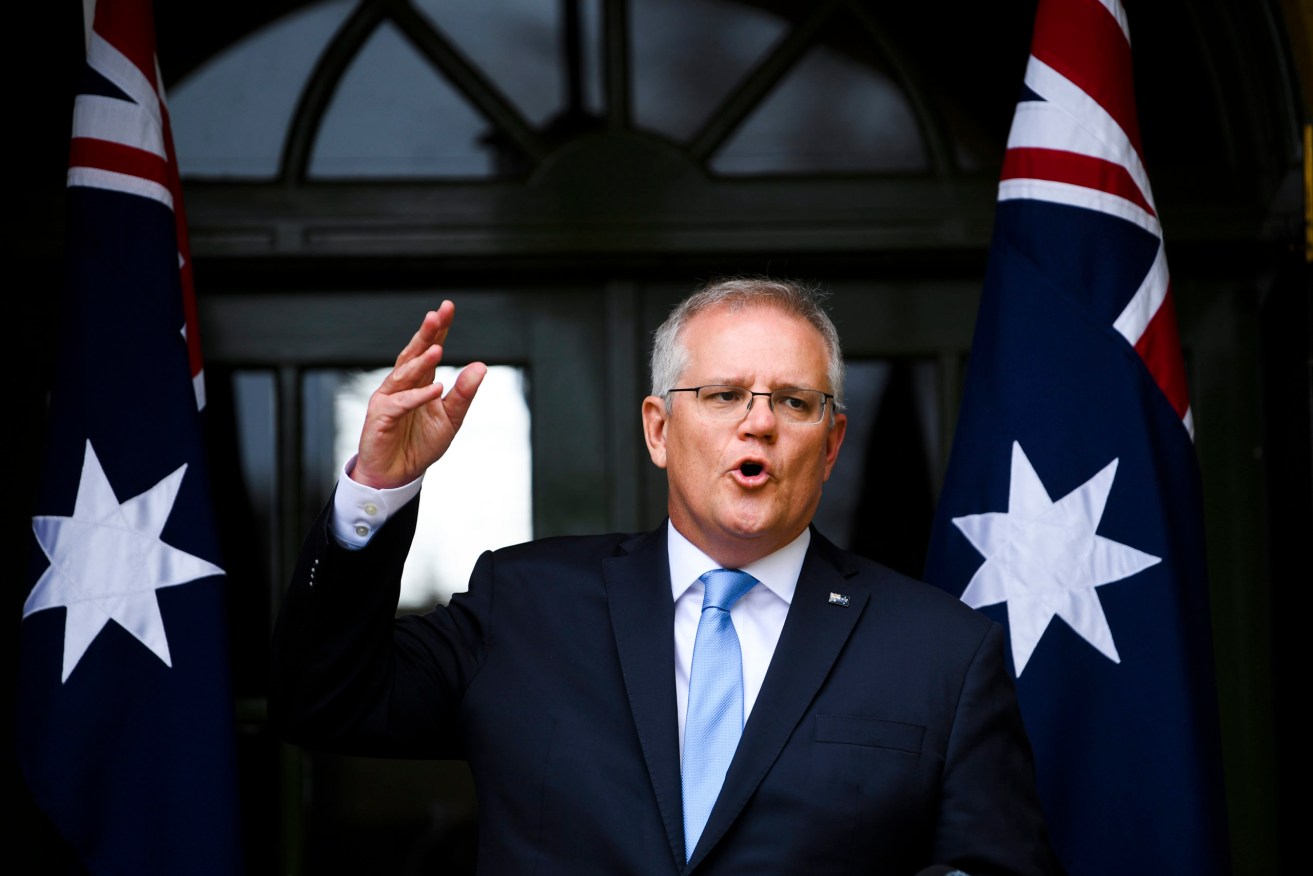National cabinet agrees to expand number of ‘essential workers’ to salvage economic activity
The definition of essential workers has been expanded to multiple industries, as national cabinet aims to address crippling supply issues across the country.

Australian Prime Minister Scott Morrison. (AAP Image/Lukas Coch)
Changes will see transport, logistics, service station staff, emergency services, correctional workers, energy, water and waste workers all come under the ‘essential workers’ umbrella, under an agreement struck by Prime Minister Scott Morrison and state and territory leaders on Thursday.
The changes would allow for those employees to go back to work after being deemed a close contact, provided they receive a negative result from a rapid antigen test.
Food distribution workers, telecommunication, broadcasting, media, education and childcare employees will also be classified as essential staff under the plan.
National cabinet also allowed for international students to work more than the current limit of 20 hours a fortnight, in a bid to ease supply-chain issues.
Spiralling numbers of Omicron cases have placed large swathes of workers out of action from their job due to either contracting Covid-19 or being deemed a close contact.
The prime minister said the situation was a delicate balance of keeping people at work while also protecting the health system.
“We know what we have to … keep our hospitals going, keeping our health system strong and keeping as many people at work,” Morrison told reporters in Canberra.
“The less restrictions you put on people to get them to work, the more pressure that could potentially put on your hospital system.”
Treasury officials told national cabinet that up to 10 per cent of the workforce could be absent from their job due to the virus.
That figure could rise to as high as 15 per cent of the total workforce if schools were unable to open due to the virus.
“That’s the impact of a highly contagious infection and virus,” Morrison said.
“That’s going to have an inevitable impact on the workforce and that has to be managed.”
Concession card holders will able to access free rapid antigen tests from pharmacies from January 24.
The agreement from national cabinet would allow concession holders to have up to 10 free tests over a three-month period, with no more than five per month.
The prime minister also said reinfection from Omicron was a real risk, and blasted so-called ‘Covid parties’, or gatherings designed to get people infected with the virus.
“All this nonsense about Covid parties, it is ridiculous. Reinfection can occur with Omicron,” he said.
“If you think you can go out there and get the virus and get it over with, that’s not how it works.”
The head of the country’s vaccine rollout Lieutenant-General John Frewen said there were 346,000 vaccine doses administered on Wednesday, nearly a one-day record.
Of those, 254,000 were booster shots.
Since the start of the rollout for five to 11-year-olds began on Monday, 142,000 children, 6.2 per cent of the cohort, have received their first dose.












